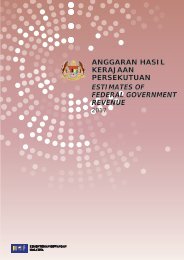WEALTH
2c0esX1
2c0esX1
Create successful ePaper yourself
Turn your PDF publications into a flip-book with our unique Google optimized e-Paper software.
FOCUS<br />
“For those with a risk of getting Alzheimer’s disease, there<br />
are measures to reduce the risk,” says Pinchas Cohen, dean<br />
of the USC Leonard Davis School of Gerontology. “Other<br />
behavior patterns help reduce the risk of diabetes or cancer.<br />
Choosing preventative measures to avoid personal highrisk<br />
diseases is the most important step in “personalized<br />
aging,” a term coined by Cohen.<br />
» OUR NEXT CHALLENGE IS EMPOWERING<br />
PEOPLE TO USE THEIR GENETIC DATA<br />
TO PROMOTE THEIR HEALTH AND HAPPINESS «<br />
PINCHAS COHEN, DEAN OF THE<br />
USC DAVIS SCHOOL OF GERONTOLOGY<br />
Health and nutritional advice abounds but is often<br />
conflicting. People need personalized advice that involves<br />
a limited number of things to do, explains Cohen.<br />
The concept of personalized aging is spreading as<br />
scientists increasingly understand genetic variations, the<br />
interaction between genes and the environment, and their<br />
correlation with specific diseases. Personal genomics has<br />
advanced over the last decade, allowing medical<br />
professionals to analyze individual’s genomes by means of<br />
single-nucleotide polymorphism (SNP) analysis chips and<br />
partial or full genome sequencing.<br />
Accessing genotypes makes it easier to identify the gene<br />
variants associated with the risk of getting certain diseases.<br />
For example, variations within the gene called Apo-E<br />
determine the risk for Alzheimer’s disease. This risk can<br />
differ by a factor of 10 from one variant to another.<br />
Other genes act as health pointers: a melanoma-risk gene<br />
variant might make you rethink your sunscreen regime,<br />
another gene variant helps determine the usefulness of a<br />
daily aspirin, or a glass of red wine.<br />
Once the individual risk is understood, various<br />
interventions are available, says Cohen. “We can sequence<br />
individual genomes quickly and relatively cheaply. Our<br />
next challenge is empowering people to use their genetic<br />
data to promote their own health and happiness.”<br />
YOU ARE WHAT YOU EAT<br />
Helping people select the best diet for them, according to<br />
their genetics and other biomarkers, such as blood lipid or<br />
cholesterol levels, comes top of the list. This remains an<br />
area of active research but emerging data indicates that a<br />
low protein diet might help people with a high risk of cancer<br />
and that certain gene variants determine the<br />
responsiveness to a low carb diet.<br />
Then comes exercise. Genetic variants determine<br />
whether certain people benefit more from high-aerobic<br />
exercise, such as running, or from low-impact workouts,<br />
such as weight lifting. Research is ongoing. “We are still at<br />
the stage where we can only tell people that physical<br />
activity is good,” says Cohen.<br />
Who knows how the practicalities of this will unfold.<br />
Clearly, healthcare professionals will need to pass on<br />
medical advice to individuals to stop them from making<br />
inappropriate decisions about their health, Cohen suggests.<br />
Already over a million people in the US have voluntarily<br />
had their genes analyzed. Not everyone chooses to delve<br />
deeply into their genome but the opportunity to do so and<br />
guarantee healthy aging is beckoning.<br />
Allianz • 27



